Words With: Ani Phoebe
Hong Kong, pop-up vending, records as journaling, cultural currency, sustainability, retail as cooperative ecosystem.
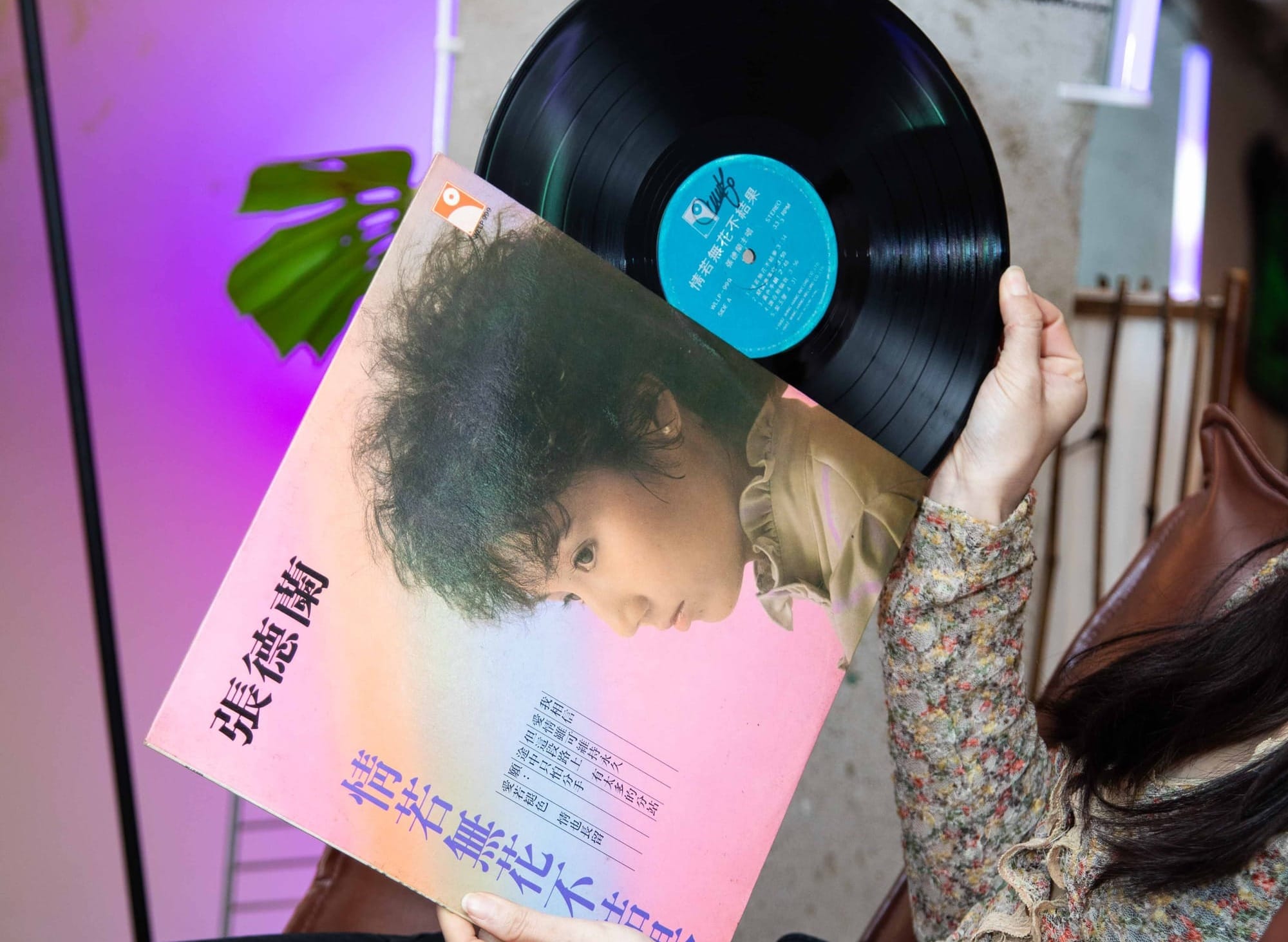
Ani Phoebe is a DJ, event producer, record vendor, writer, and community organizer—or simply a "music person," as she describes below. Originally from New York City but now based in Hong Kong by way of Rio de Janeiro, she takes a global approach to DJing and curation, picking out spacey disco, international pop, and left-field jams from all over the world.
I was introduced to her by Jeremy Castillo (of Bar Part Time), who helped line up a date for her to play Vague Terrain, a party series I co-founded, in June 2023. During her stay in the Bay Area, she and I became fast friends, and I quickly learned that she is precisely that type of "music person" I resonate with—someone whose practice is dedicated to culture and community, not commodity.
Earlier this year, Phoebe opened up a pop-up record store in Hong Kong called Bad Times Records—an extension of Bad Times Disco, which she launched in 2021 with Yuki Kai. Though the shop was only open for five months, it struck me, from afar, that there would be more to the story than that short timeframe might suggest. I spoke with her to learn how the shop came together, what she learned from the experience, and whether or not it might ever be resurrected.
I've been selling records since the pandemic, which I think was very common for a lot of DJs, producers, maybe just music enthusiasts in general, because we had fewer gigs, and also, fewer opportunities to meet other people. People were selling more online, obviously, but in Hong Kong, we had a safer context. We were able to meet each other in person, because everybody wore masks, and because the Covid count in the city was so low. So I really began to discover a love for selling records. It's always been done in a very community kind of way. Venues in Hong Kong would support the record sellers. Essentially, they would let us sell for free. These venues would not take any money, the organizers would not take any money. And all these record sellers—which, to be very fair, are like 99% men, and then just me, I'm just, like, thrown in there—we would all come together. It would be once every two months or so, record sales were up and down. But I was very drawn to it. I really enjoy doing it.
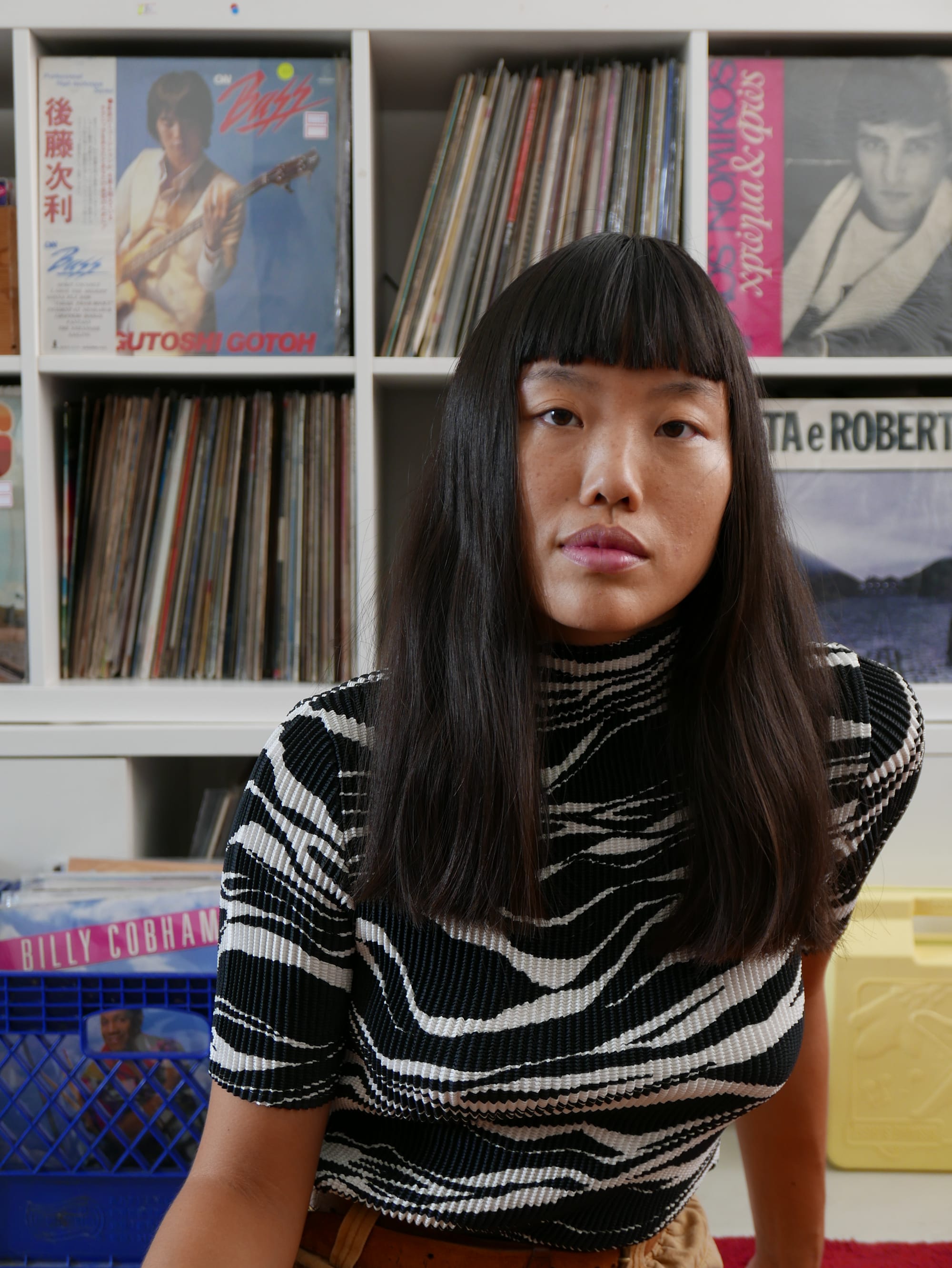
I can't even explain to you why I really love doing it, because I live on a fifth floor walk-up building, and every time I sell records, I carry boxes of records up and down. And most people in Hong Kong don't have a car, so I call a delivery van, and we go to different places. I still love doing it. I think these things, you either love doing it or you don't love doing it. For me, very immediately, I was like, I like doing this offline. I don't like doing this online. So at first, it was just me and my partner from Bad Times Disco, Yuki, and we would do these pop-ups together. We did a lot during the pandemic. I don't really remember how many markets or fairs or stuff that we did.
In the beginning, selling records was a crucial part of Bad Times Disco. Eventually we started throwing bigger parties, but during the pandemic, I thought it would be safer to do very small scale gatherings, to build a community. But at a certain point, around November 2022, the government lifted the hotel quarantine so we could begin to bring DJs into Hong Kong again. Zero Covid time was over, most of the people in Hong Kong had already been vaccinated or had gotten Covid. So that was when we decided to focus more on the party. My general feeling around [building the pop-up] record store was that I missed selling records. I love the parties that we do. They're also very ephemeral. They're very special moments in our lives. But for me, selling records, that's 30 to 50% of the identity of Bad Times Disco. We're trying to tell people that it doesn't have to be expensive to collect records. You can collect records without a turntable—I've sold so many records to people who have never touched a record before in their lives.
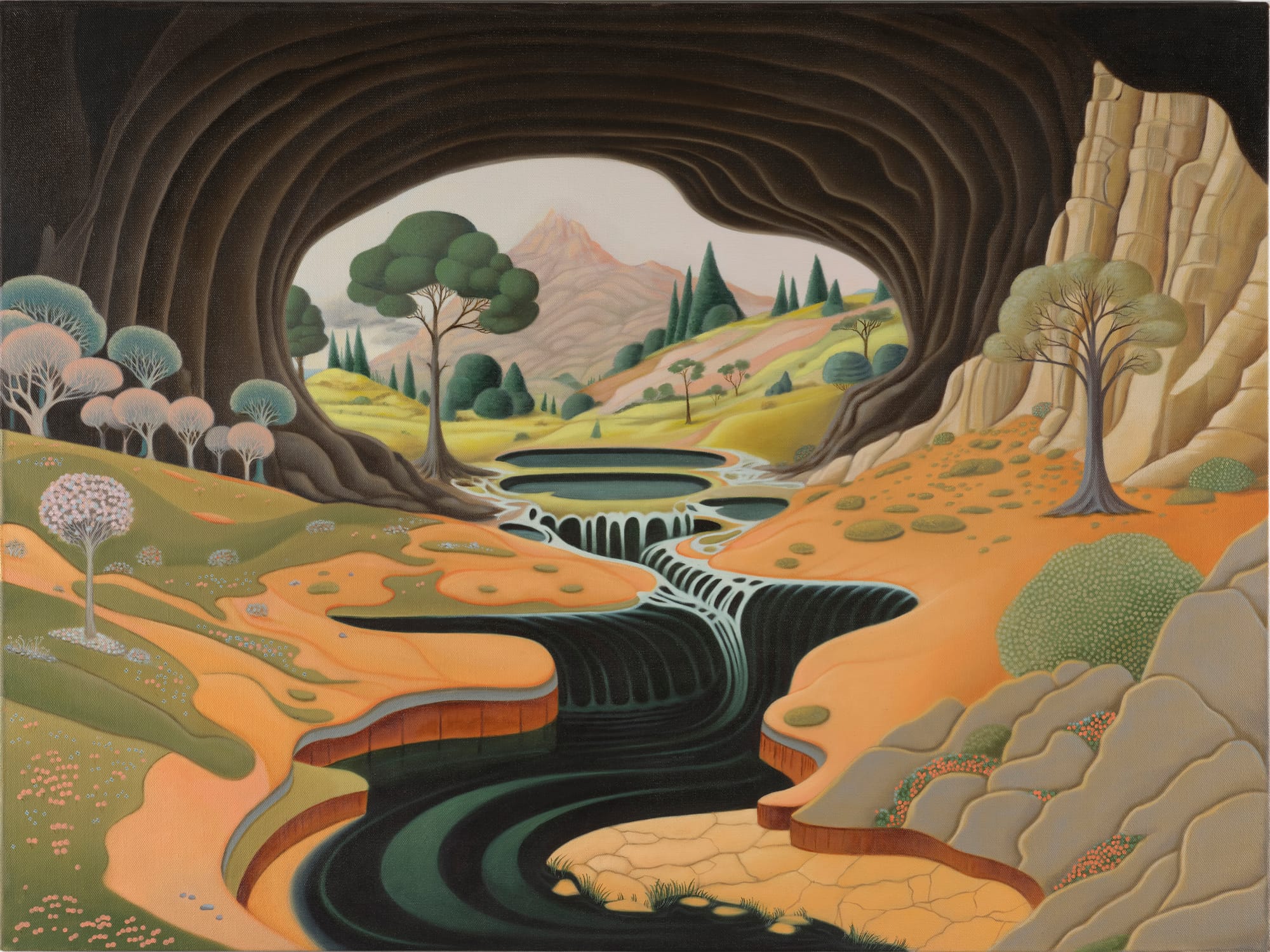
I tell them that it's very, very normal to collect records and not have a turntable. It's often a financial and a space constraint. I didn't even have turntables until I came to Hong Kong. When I was living in Rio, before I moved to Hong Kong, it was so precarious—I was not financially stable. I was moving apartments all the time. I really understand the experience of a young person who has so much financial instability in their lives, and they don't know what's going on, but I just tell them, You should collect records. The reason why is because it's an archive of your musical taste. It's an archive of your life. It's like journaling—a musical snapshot of where you were. That kind of archive is something that any type of streaming platform, or even SoundCloud, could never provide you with. So I believe collecting records is very important. It is much more important than becoming a DJ. It's much more important than throwing parties. Everybody should collect records if they can.
The point is, at that time, we're doing the parties. I do love it, but I miss selling records. I don't have the capacity—this is very funny logic. I don't have the capacity anymore to do pop-ups, so I decided to open a record store instead. Somebody approached me—they were working for a new kind of underground mall in a very historic building, Chungking Mansions, in TST [Tsim Sha Tsui]. They approached me with this idea of coming to check out their space. I initially checked out their space to do a party, not to do a store. While I'm checking the venue to do a party, they tell me, Oh, you should consider opening up a store here. Essentially, the negotiations took about a year. I do a lot of due diligence when I check out venues.
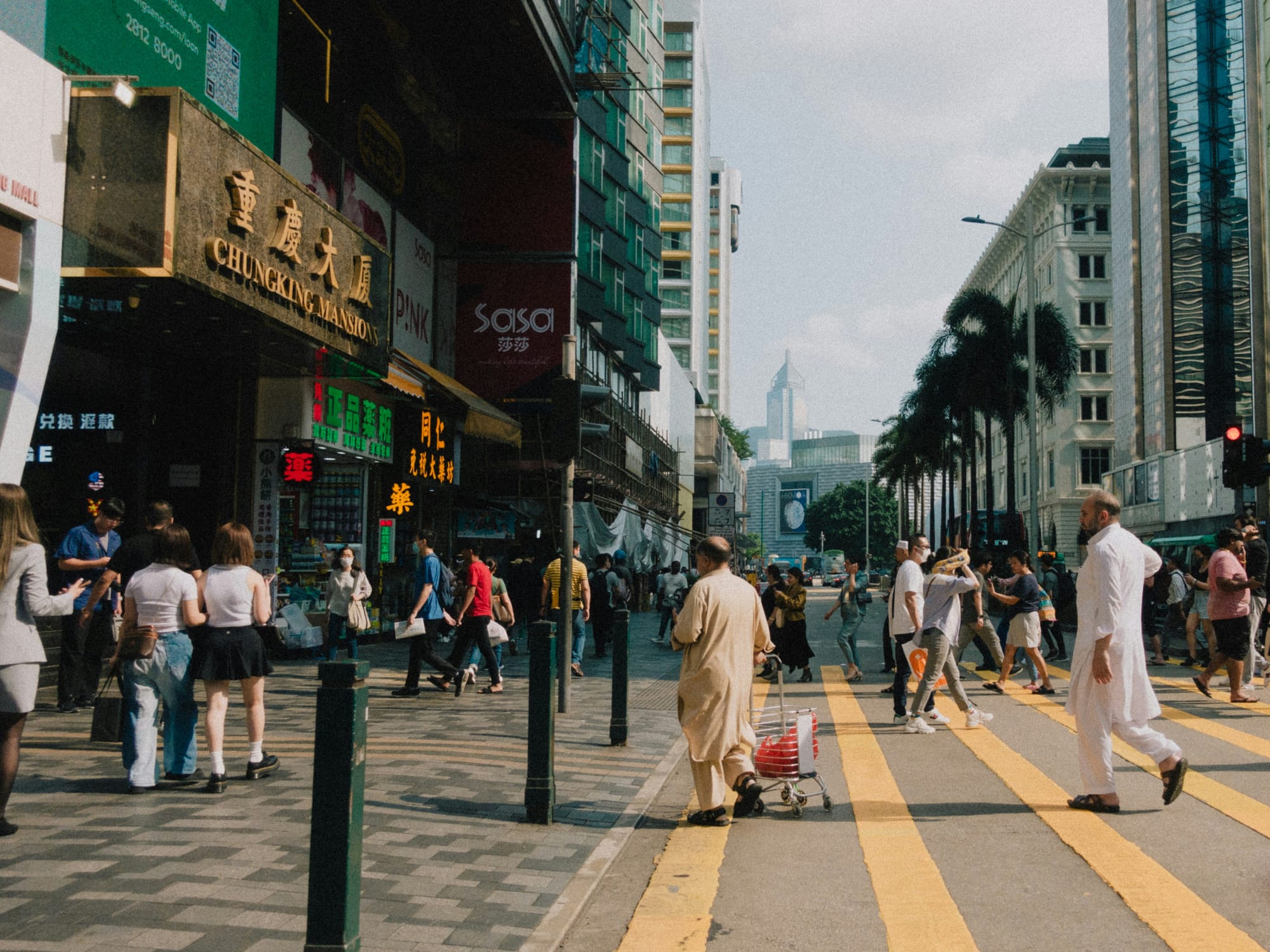
I talk to people about, What are they doing in this building? I mean, Are they ruining the entire building and the entire neighborhood? What is their project? Who are these people? I learned that it was a woman who started the whole project [of the underground mall]. Chungking Mansions is historically a hub for South Asians, African migrants, Southeast Asians who live there, running businesses. It's a very special place in Hong Kong, and I didn't want to just open up a record store inside of a project that didn't make any sense in the basement.
So it took me a while, about a year, to investigate the opportunity, to figure out my own feelings about it, and then, most importantly, to financially strike a deal for this project, as an independent music and art space—I am not a wealthy person at all. I am from a working class family, although maybe I don't identify as working class now, I don't have a financial safety net. I didn't envision having another partner. I didn't envision having an investor. I wanted to do an independent space, to make no compromises—but then, in that case, financially, I'm responsible for it. I gave them the full history of my party—I told them that we do mutual aid and community, organizing and fundraising. We are absolutely not profit-centric, although I would never establish ourselves as a nonprofit in Hong Kong, because then that means the government is aware of us. So I told them, If you give me a good deal on the rent, I promise you that we'll create an amazing space, and we'll bring foot traffic into the place. In all reality, they need us, as well, for legitimacy—a kind of cultural currency. So I know my worth when I'm negotiating.
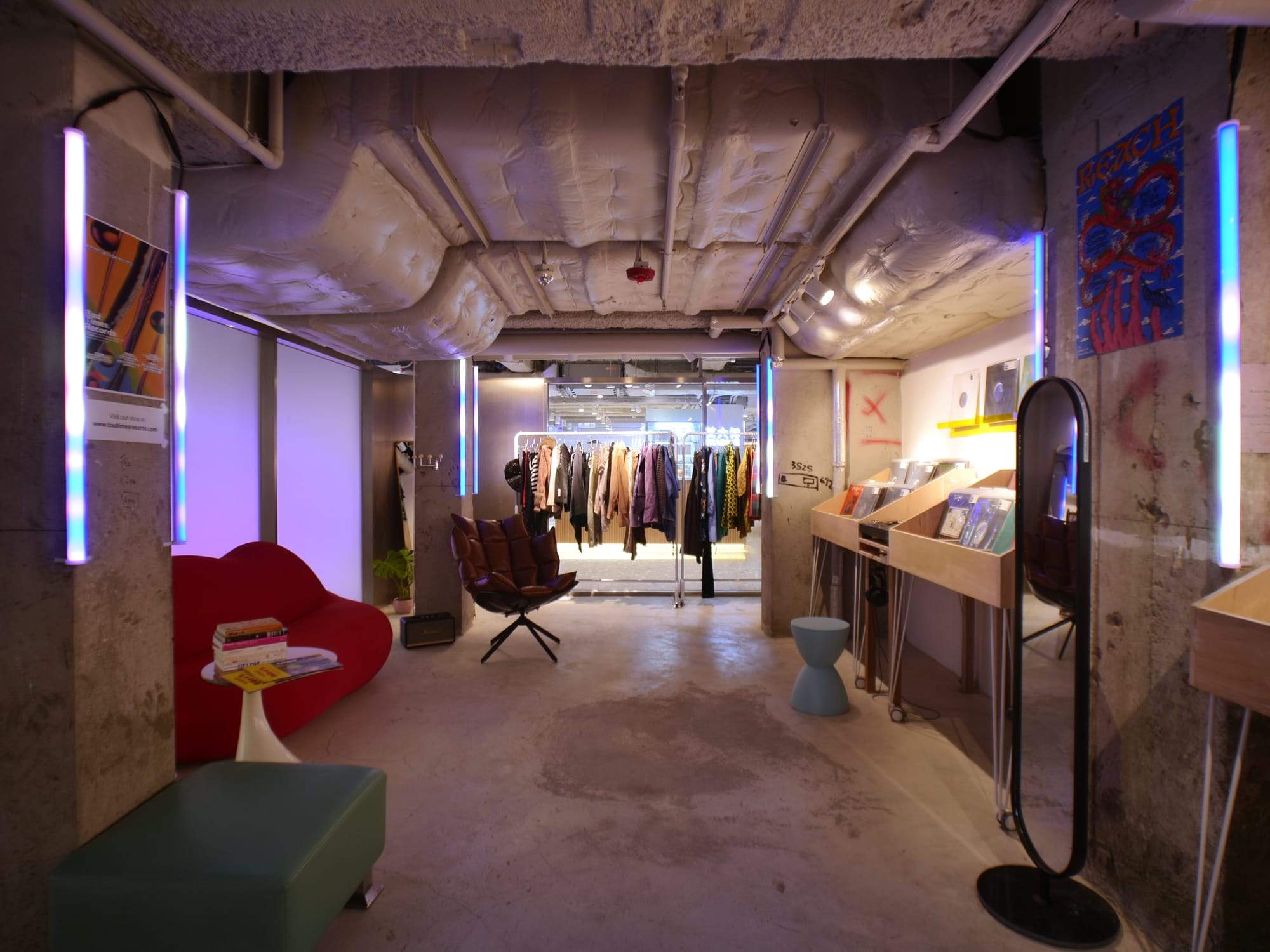
Eventually, we strike a deal, and we move forward on this negotiation. My partner joins the project with me. His name is Daniel. We decide we're going to do it together, fully. Daniel had just quit his job, and I'm already a full time freelancer, so I'm able to basically dedicate my life fully to this. The kind of attitude and mentality I had at the time was that this is a once in a lifetime opportunity—and because we would never be financially incentivized to do something like a record shop—if I'm at a place in my life where I have an opportunity, and I feel supported by my community in Hong Kong, then why not just do it? There are all sorts of projects that, individually, we might be more incentivized to do, because we live in capitalism. So inherently, my thought is, in the future, if I actually wanted to do a venue and be actually compensated for all of the time that I put into it, I would open up a bar or a club—I wouldn't do a record store. So this was the one moment where I could just do the project of my dreams, essentially.
The other thing to consider here is that if you're a music person—I'm a music person, I don't like saying DJ, producer, radio host, record shop owner, club owner, I don't really care about those divisions, whether or not you work in it professionally, if you're dedicating your life to music, you're a music person—as a music person, I've never had to plan my life in this way [because of running the pop-up record shop]. For example, now I'm touring at a different time of the year, and I've turned down six gigs in Hong Kong because I'm touring at this time instead of the usual time that I'm touring. I genuinely feel the repercussions of changing my schedule, you know, to accommodate this or that. And so, we really had to time the record store for a very specific period. In the end, it didn't actually work out how I had planned, because opening and closing a venue takes up so much more time than you think. Even though this was a five-month project, it actually probably took us about a year and seven months total. There were a lot of repercussions to my life for this year—I might not have the best schedule to be the person doing a record shop at all, honestly. [laughing]
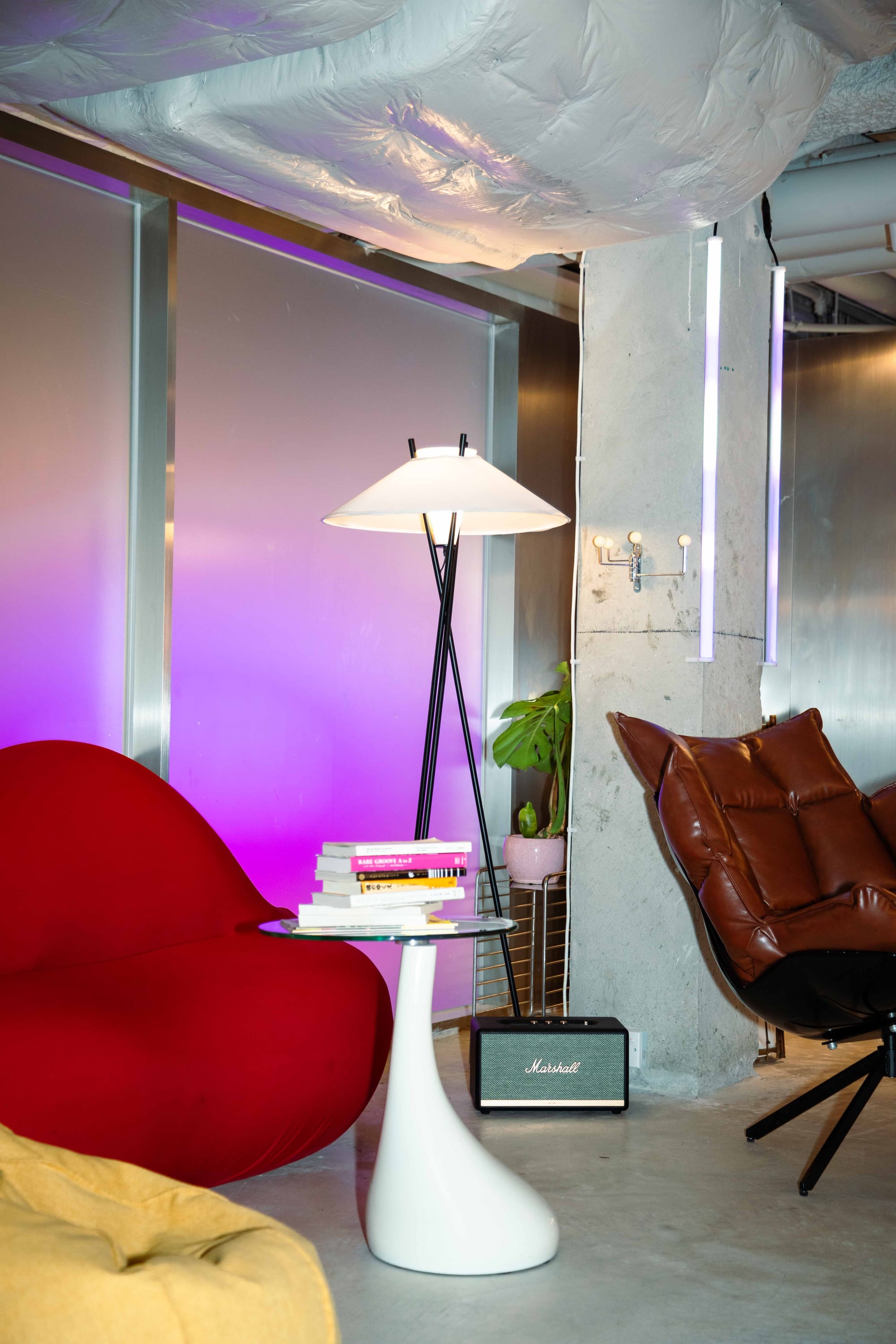
The shop opened in January and it closed in June [2024]. It was so successful that we wanted to continue, and we nearly might have—I would just say, I'm a Gemini, and I'm very indecisive, so up until nearly the last day of the lease, I was almost going to continue—financially, we were able to cover our costs and pay ourselves. The community programming was great. Everybody loved the space. The most important thing was that people didn't want the space to close, and that kind of broke my heart a little bit—but when we announced that we were closing, of course, everybody who hadn't already come to the shop came that weekend, and it's so annoying. Psychologically, I understand this is the way that people work. I get it, but it's annoying.
It's always sad to close a space. We're going to continue doing record pop-ups. The party [Bad Times Disco] is still going on, and in many ways, I hope the party only becomes better. But a party does not compare to the spiritual importance of a music space for people. And I really hope to do it in a way that I think is more sustainable and flexible for my own kind of weird schedule, and I think that means having partners. I'm really interested in the ways that small businesses can support each other. Maybe we can share leases. We can rotate spaces in Hong Kong—this is already happening, so I know of an example of an art gallery and a pottery studio, which share a lease. They share a space, and every two weeks they rotate out. So this model already happens in Hong Kong, out of necessity, because the rent is so high.
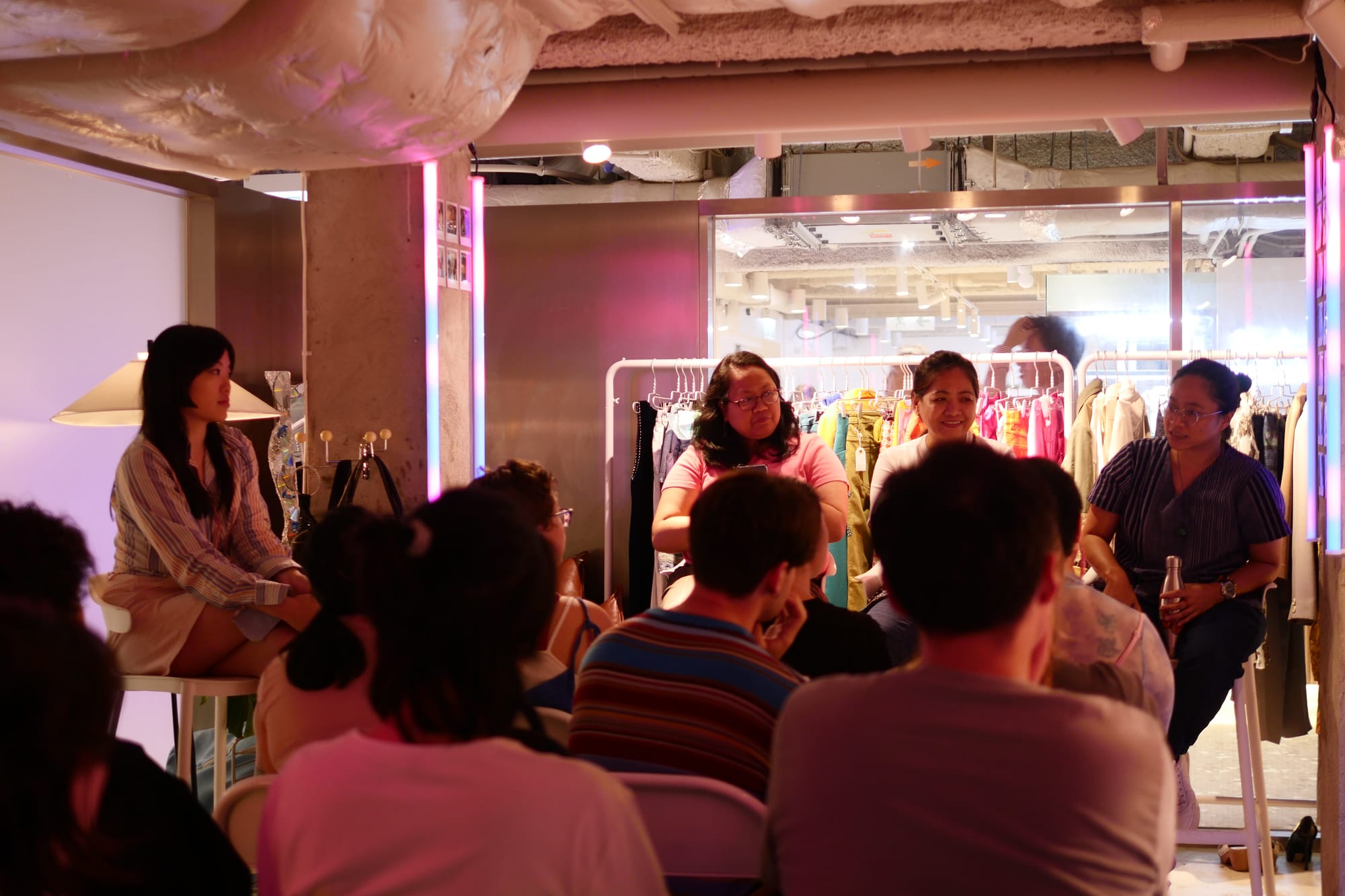
I think that I did a very unusual thing, which is that I used the record store as a venue. We did every type of event in the shop we could. I used this space as a venue because I know how scarce space is, and I kind of went into it thinking, Huh? I wonder why other record stores don't do this—maybe they have DJs play once in a while, but they don't really do a lot of events. And then later, I realized why record stores don't do this. Just running a record store is so much unbelievable work. The thing is, I'm a more social, event-oriented person. That's why I throw parties. So I'm actually not like typical people who maybe run record stores. They might be more of the introverted music-lover type. Maybe they really love diving deep into history and record labels, or they're really nerdy about music in some way. Or they're people who love records but don't go to parties. And I realize it's harder to get me to do that—cataloging and database-ing, the unglamorous work of running a record store, that was a bit hard for me. I loved the events, and we did about 12 events every month, two to three per week.
I sometimes look at things and in a complaining kind of way, I'm like, Oh, I wish people did more, or I wish they would use this space this way. And this is also a big process of me just growing up—realizing it takes a lot of fucking effort to do anything. And this is the reason why people don't do this. They don't do this, they don't run their record stores like venues. They don't. It's an unbelievable amount of work, and I completely burnt out from doing all of it. But it is a good lesson. It's a big growing up lesson—I think about why people do more, or do less, or choose to focus on this, or that, or the other. It's something that I never really had to learn about before, just focusing completely. I just do everything all at the same time, and I somehow make it work. But I don't want to sell this to people as necessarily being a good thing, or being a sustainable thing completely. That's my biggest lesson from the record store.
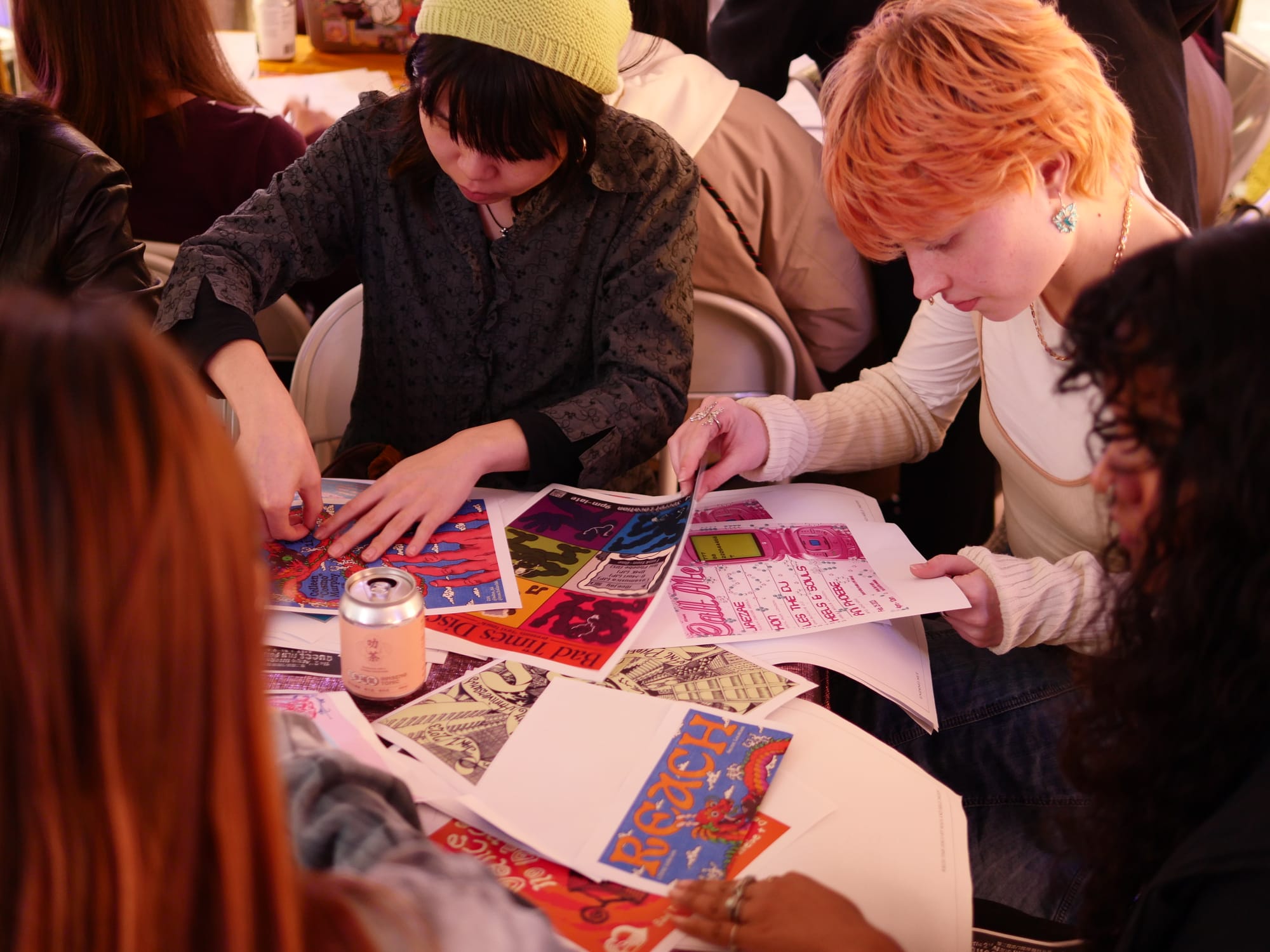
I still remember this one man who walked into the store, an older gentleman. He told me he was solo backpacking around mainland China, but he had to cut his trip short because it was getting too intense for him. I was like, Yeah, that is an intense trip. And he said, Oh, I had to cut my trip short. I'm kind of disappointed, but I'm going to go back home, and I want to buy records from this region. I really don't know that much about Chinese music, but just recommend some things that are very unusual.
And I remember he was really taken with the recommendations that I made, listening very closely. He stayed an incredible amount of time, because he was just listening to every single song on each record. He ended up getting a lot of records—a lot of '70s Chinese rare groove. I also recommended some earlier Canto-pop. We had a great conversation, and I told him, You shouldn't be upset. You cut your trip short. You made it out. You didn't get sick. And I just thought, Oh, I hope when I'm 75, I'm still solo traveling. He was just so lovely.
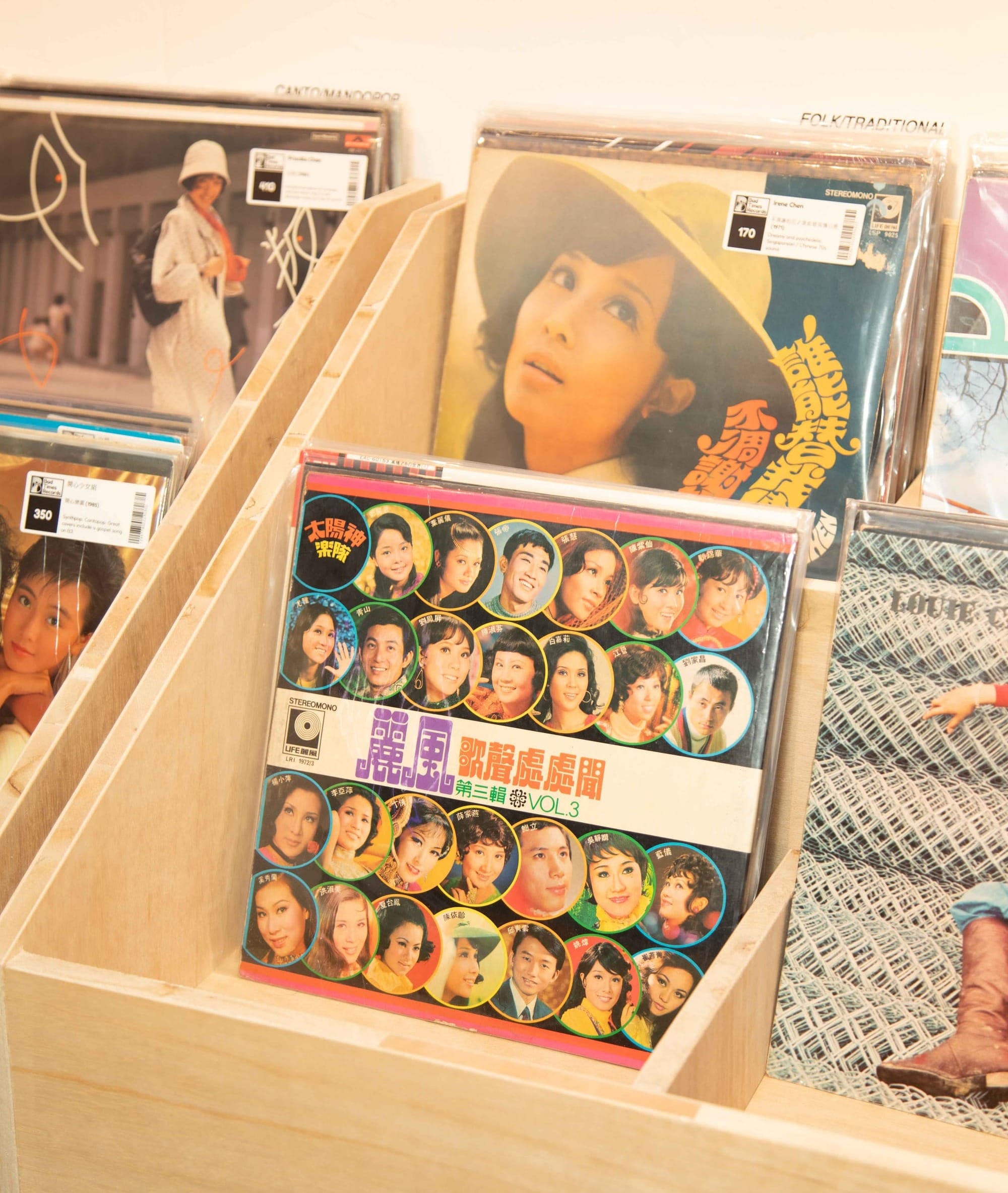
The main identity of record stores is all about where you source. We were sourcing records from all over Hong Kong, and in a very boutique way—so I'm not buying anything wholesale. I'm literally buying records from all the diverse places that I go around to, digging in Hong Kong, and then reselling them. And the amount of effort it takes to do that is so much higher than people who are buying collections. I think the only way to become a sustainable record store is to have really good sources of collections—so that I can buy 10,000 records, but not 10,000 bad ones. That kind of curation is really important, and we weren't willing to do that for a five to six month pop-up.
We wanted to sell as much as we could buy, and keep that kind of amount steady. I think we turned over our entire inventory that we went into the shop. We turned it over maybe once, and then we probably left the store with nearly as many records as we started with. It was just done in a very small boutique way.
After finishing this project, I've had to try to analyze why I like doing this. In fact, I did a pop-up after we closed the store, and even though I'm burnt out—I'm still mentally exhausted by this project—I did it just to see if I still like selling records. And it turns out I actually still loved it. So I lugged all five boxes down my stairs, then went back up, with help from Yuki. I love it. I think I've built a good community. I have people who support me, and people who are like, Do you need any help? So yes—I still love doing it.
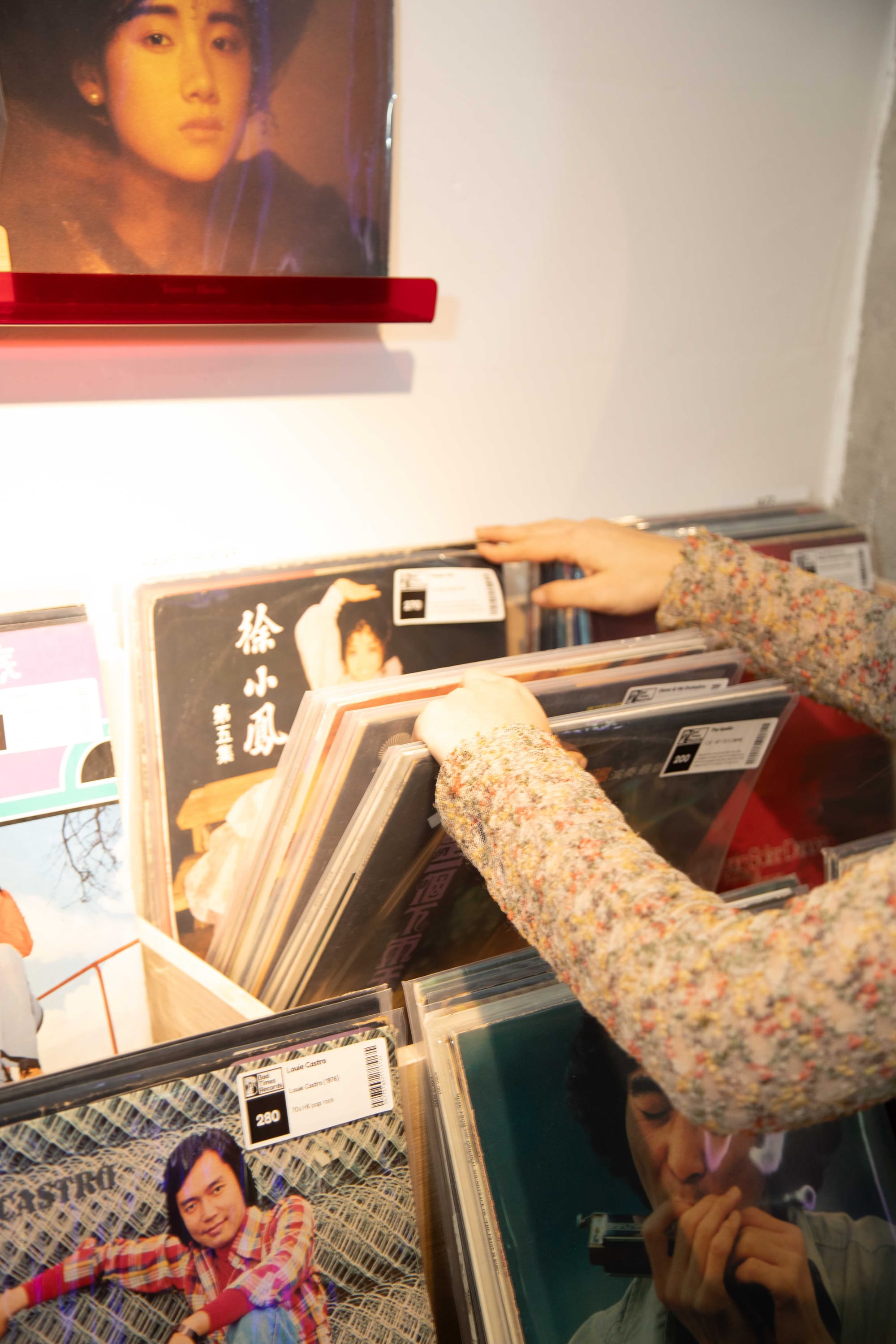
And at this pop-up, I also sold records to two people for the first time, younger people. I sold both of them really good records. And I said to them, If my first record had been either of these two, I'd be so happy. My first record that I bought was terrible. [laughing] Both people bought really great records. I was like, Oh, the kids are fine. They're buying great records.
Moving forward, I'm proposing another type of pop up store. I want to go into a direction that is longer than a day pop-up, and shorter than a traditional lease—the format that I had for my store was already very atypical. I'm not going to do five months again, but I'm curious about a one-to-three month kind of scale. And I'm also very curious about small businesses supporting each other. Right now the economy in Hong Kong is not great. Retail, specifically, is not doing great. I actually believe that we did amazing for a record store, because we did well in a retail economy that is suffering in many ways. You need local businesses, local shops. They are not just there for locals. They're also there for tourists, and they also make up the visual identity of the city, you know. So when I come here to San Francisco, I'm very charmed by all of the local businesses, and I know that if I support them, my money directly goes to them. I'm not supporting a multinational chain.
I think the retail landscape has worsened dramatically. I would say it's extremely hard for someone my age to do a shop in Hong Kong—to do something that is their passion. They might want to build a business, or open up a small shop. They're not looking to get rich, but they want to cover their rent, and maybe earn some money on top, but that's become very hard. And that is literally contributing to a scenario where the city is more unattractive to visit—we need to have a beautiful city landscape for people to enjoy and to participate in. And that would make people want to be in Hong Kong, and feel like, Okay. I can spend my money here. I can stay this weekend in the city.
Through doing a record store, I developed some relationships with local businesses where I felt like we were supporting each other. I gave them a place to do an event, and they brought customers in—they don't have to be music heads. I didn't find [that kind of business relationship] very transactional. I'm not a transactional person. We got to know each other on a personal level, and they supported me. I follow up with people, and I'm kind of asking them, Hey, how's it going for you? How's your place doing? And it hurts me that people are telling me that they're struggling. And so I am interested in a type of model where we can support each other more.
The whole definition of community should be to celebrate the good times together, be together, have fun—but if we're not there for each other in the tough moments, then it's clearly just transactional or superficial. So I'm very curious. I also think I do have this tendency to try to do too much, but I'm curious about—what is the place of Bad Times Disco within the ecosystem of Hong Kong? And how can we not only do well for ourselves, but how can we help and support specific communities that we created relationships with? And when they're struggling to pay the rent, or they don't have enough customers, like, what can we do together? How can we build together?
